Drug Addiction Relapse Prevention
Table of Contents
As they say, “recovery is a journey, not a destination.” Individuals abstaining from substance abuse must overcome various hurdles along the way, including temptations to start using again. Drug addiction is a chronic disease, and those who suffer from it may go in and out of remission just like those who battle diabetes and lupus. Although there’s always a lingering threat of relapse, individuals who maintain a robust support system, practice healthy coping mechanisms, and continue to receive therapy can often mitigate their desires to use again.

Understanding The Stage Of Drug Addiction Relapse
Drug abuse relapse doesn’t happen at once – it builds up over time. The signs of drug addiction eventually start to consume their lives. In many cases, recovering drug addicts will begin to experience the negative emotions they endured while they were using. Ultimately, it becomes more challenging to overcome intense triggers, and the risk of relapse skyrockets. Fortunately, because relapse doesn’t happen overnight, one shouldn’t overlook the initial warning signs.
Emotional Relapse
Individuals in recovery typically emotions relapse first – the resurgence of negative emotions often associated with depression and anxiety. They may feel these negative emotions after experiencing a trigger, such as witnessing their friends take a drug they once abused. In other words, emotional relapse is a transition from emotional stability to emotional instability. However, there’s still hope to improve your mental state if you acknowledge the warning signs of emotional relapse.
Mental Relapse
Mental relapse follows emotional relapse, and one could best define this stage as a period of internal struggle. Although individuals don’t want to relapse and go back to square one, they also have trouble overcoming the intense urges that haunt them. By the time they hit mental relapse, many recovering addicts are vulnerable and may cave in and start using drugs again. At this point in the relapse continuum, individuals need to seek professional treatment.
Physical Relapse
Physical relapse soon follows if one doesn’t curb their cravings in the subsequent mental relapse stage. This stage describes the physical act of consuming drugs again – breaking free from abstinence. Without intervention, individuals in the physical relapse state may not control how much they use and ultimately suffer long-term consequences. Once an individual uses again, they’ll need to enter one of our substance abuse programs and receive treatment at our luxury drug and alcohol rehabilitation center.
Signs Of A Drug Addiction Relapse
Trying to figure out if a friend or loved one has relapsed isn’t always easy. You have to watch their behavior for some time until that “aha” moment hits you. If you notice any of the below signs, there’s a good chance your friend or loved one could be experiencing a drug relapse:
- Increased mental health disorders, such as anxiety and depression
- Frequent mood swings
- Poor performance at work or school
- Hanging out with individuals who actively use drugs
- Talking about drugs in a positive light
- Lying habitually
- Quitting healthy habits, such as working out and eating a balanced diet
How Do You Avoid Drug Addiction Relapse?
Avoiding drug addiction relapse is often easier said than done. You must put to practice everything you learned during substance abuse treatment. Moreover, you need to stay engaged to avoid losing sight of your goal.
Here are a few of the best ways to avoid drug addiction relapse:
Participate In Our Alumni Program
Recovering addicts should join our alumni program – a network of individuals who share the common goal of sobriety. Program participants meet frequently, enjoy fun activities, listen to guest speakers, and celebrate their sobriety birthdays. URP graduates outside of South Florida can stay connected through our private Facebook group!
Continue Therapy After Graduation
Therapy is essential once you’re out in the “real world” since the stakes are higher than ever before. Leaving our luxury rehab center and immediately stopping therapy is like cutting off a habit cold turkey. We recommend attending weekly individual and group therapy sessions and then eventually reducing the frequency of sessions to bi-weekly and then monthly. Graduates can also highly benefit from attending a 12 step program.
Reevaluate Your Relationships
No one likes to end friendships, but sometimes you have to cut your losses. Maintaining relationships with active drug users as recovering addicts is incredibly challenging. Merely seeing drugs could trigger you to use them again or invoke depressive feelings. If your friends don’t respect your sobriety, it’s time to form new friendships with like-minded individuals.
Build Your Support System
Many drug addicts hurt the relationships with individuals they hold close to their hearts. If these individuals can let go of the past and support your long-term sobriety, they will ultimately become part of your support system. When you’re feeling under the weather or tempted to use again, your support system is there to help you avoid relapse. You’ll learn the best ways to cope with your emotions throughout our luxury addiction program, which is imperative to rekindling relationships with those you love.
Be Mindful Of Social Situations
We all like to have a good time, but as a recovering drug addict, you have to be mindful of where you go for leisure. Avoid places that are notorious for drugs – house parties, nightclubs, and even music festivals. If you surround yourself with individuals who support your sobriety, you hopefully won’t get invited to festivities with drugs involved.
What Should You Do If You Relapse?
If you start using drugs again, you’re likely in a vulnerable state and need immediate treatment. Don’t wait to reach out for help – you don’t want your situation to exacerbate.
Please contact us at 833.525.0166
to start our drug and alcohol addiction treatment and reenter drug detox.
Find The Healing You Need
At United Recovery Project, our holistic approach to addiction treatment centers around addressing and healing the underlying issues at the root of addiction. We help guests heal mentally and emotionally.






